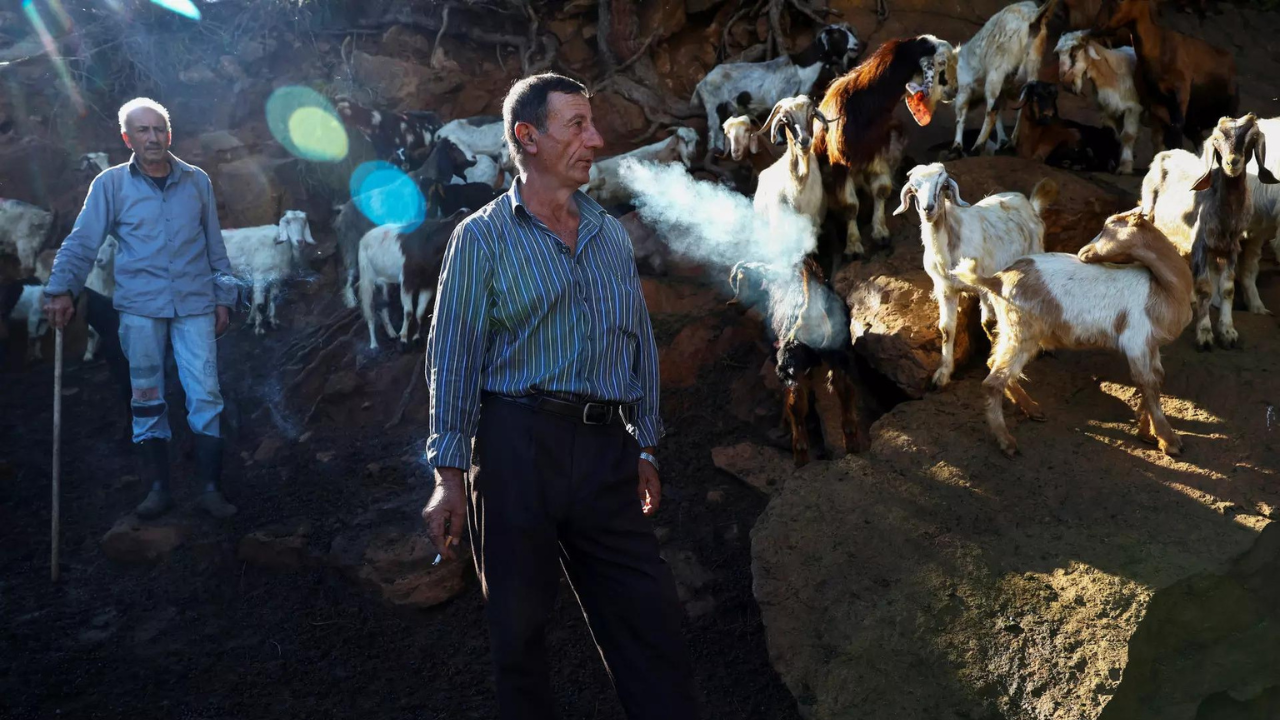[ad_1]
MAJDAL SELM: The rolling pastures of southern Lebanon have supplied excellent grazing grounds for native shepherds’ flocks for hundreds of years. However they’re now off-limits, rendered too harmful for sheep, cows and their herders by Israeli air raids and artillery fireplace.”All of us shepherds take our herds to (the border areas of) Mays al-Jabal, Houla… however with the shelling, you may’t get wherever close to there,” mentioned Ali Beber, with a flock of 350 sheep. They’re now squeezed right into a corrugated steel pen within the city of Majdal Selm, about seven kilometres (4 miles) west of their typical grazing spot. Beber, 57, walks them briefly day-after-day however has had to purchase haystacks to feed them at a price of round $2,000. “This is not low cost. I had ready hay for them so they may eat throughout winter, however that was meant for wet days,” he mentioned. “The hay I’ve left can feed them for one more two or three days, then I will have to enter debt to get them meals.” Combating broke out in Lebanon after Israel and Palestinian militant group Hamas went to warfare within the Gaza Strip on Oct. 7. Lebanese Hezbollah, a Hamas ally, has fired rockets at Israel, which has retaliated with air strikes and artillery shells. The ensuing fires have burned olive timber and torched agricultural land throughout southern Lebanon, devastating herders and farmers already hit arduous by a four-year financial meltdown. Jihad Mentioned, 45, advised Reuters he had moved his herd to the city of Rmeich after dropping three cows to Israeli shelling earlier this month on a farm on the outskirts of the city. Two Lebanese shepherds had been additionally discovered lifeless after being shot at by Israeli troops earlier this month. Lebanese herders have lengthy realized to stay with the cross-border tensions between Lebanon and Israel. Those that enterprise too near the border are sometimes questioned for hours by the Israeli navy. Beber mentioned he had been detained by Israel twice. A month-long warfare between Israeli forces and Hezbollah in 2006 additionally hit farmers arduous. It prevented Tony al-Amil from harvesting 5 hectares of wheat and barley, he advised Reuters. This time round, he stayed within the south for the primary two weeks of shelling – however then took his 100 sheep to the sides of the Lebanese capital Beirut. “If it (the warfare) ends tomorrow, I will return tomorrow. In any other case I will keep right here, I’ve nowhere else to go.”
[ad_2]
Source link


